This is 52: Sarah Fay Responds to The Oldster Magazine Questionnaire
"This is the best time of my life."
From the time I was 10, I’ve been obsessed with what it means to grow older. I’m curious about what it means to others, of all ages, and so I invite them to take “The Oldster Magazine Questionnaire.”
Here, author and newsletter-writer responds. - Sari Botton
P.S. A reminder that in my book, everyone who is alive and aging is considered an Oldster, and that every contributor to this magazine is the oldest they have ever been, which is interesting new territory for them—and interesting to me, the 59-year-old who publishes this. Oldster is an ongoing study of the experience of aging at every phase of life.
When you see a piece featuring someone younger than you, try to remember when you were that age and how monumental it felt. Bring some curiosity to reading about how the person being featured is experiencing that age. Or, if you prefer, wait for the next piece featuring someone in your age group. Not every piece will speak to every reader. I’m doing my best to cover a lot of ground and to foster intergenerational conversation. Please work with me.
Sarah Fay is an author, educator, activist, and entrepreneur. She’s an award-winning author at HarperCollins, a member of the faculty at Northwestern University, and a Substack Growth Strategist. Her journalistic memoir Pathological: The True Story of Six Misdiagnoses (HarperCollins) was an Apple Best Books pick and hailed in The New York Times as a “fiery manifesto of a memoir.” Her new memoir Cured, the sequel to Pathological, is a bestselling, Featured publication on Substack. Her work has been featured on NPR, Oprah Daily, Salon, Forbes, The Los Angeles Times, and more. She writes for many publications, including The New York Times, The Atlantic, Time, and The Paris Review, where she was an advisory editor. As the founder and director of Substack Writers at Work, she specializes in helping people produce their best work, build a loyal audience, and earn the income they deserve on Substack. She lives in Chicago with her two beloved cats, Sweets and Baby Theo.
--
How old are you?
52.
Is there another age you associate with yourself in your mind? If so, what is it? And why, do you think?
35. I think it’s because I dye my hair. I’ve seen this as my mother ages. My mother dyes her hair and looks 65 though she’s 82. She now has Alzheimer’s. We were looking at senior facilities for her to live in while she still had most of her capacities and could familiarize herself with her environment. Everyone there had white and grey hair. She didn’t like it. She kept saying that everyone “was so old.” I kept telling her she’s the only old person I’ve ever met who is prejudiced against old people.
My life has gotten better with every single year so I'm probably going to be in state of permanent bliss by the time I'm 80. I would never, ever go back.
Do you feel old for your age? Young for your age? Just right? Are you in step with your peers?
I look young and feel young and think young, but it actually comes from a strange/dark place. It comes from having lived with serious mental illness for twenty-five years. Those years are lost to me. I know that’s not the best way to think about them because it’s completely unhealthy, but I do. I wish they had been different. I wish I had been healthier or had known how to better take care of myself during those years, but it was such a spiral, and given that the diagnoses we receive are treated as lifelong and dismal, I had no choice but to think I would always be the same.
I wrote about this in my first memoir Pathological. It feels like I lost twenty-five years of my life. If that’s the case, I’m really only 27. But again, I don’t want to think like this. Those years led me to where I am now, which is a wonderful place.
What do you like about being your age?
Despite all that, I love the idea of getting older. I love how strong I am now. I love how confident I am. I love that I figured out how to live my life: romantic relationships don’t interest me, I eat uber-healthy, I don’t drink, I exercise but don’t over-exercise, I work a lot and am completely obsessed with it and take really good care of myself. I know how to do that now. These are all things I could never have done during those twenty-five years partly because I was too young.
I believe menopause is primarily what has given me my mental health back. I asked my psychiatrist if there have been any studies about women who struggled with mental illness who then became well in perimenopause and menopause. He said there aren't any studies but that he's seen it in his patients. It makes sense.
What is difficult about being your age?
Watching my parents as they age, I’m obsessed with aging well and I try not to be too obsessed. All the longevity bros (Peter Attia, et al.) are so over-the-top. I want to say to them, You’re going to get old and the health problem you expect to have isn’t the one you’ll get so relax a little.
We never thought my mother would get dementia—never. She had heart issues, so we thought that’s what she’d need to manage; dementia was totally out of left field. The lesson is that old age is coming and it’s rarely what you expect, so just set yourself up to age well as much as you can.
I love Dr. Nir Barzilai, the longevity researcher who’s been doing a longitudinal study of 600+ centenarians. He says, “The key to longevity is boring.” It’s the usual—eat well, sleep well, exercise and we really don’t know what will cause someone to make it to a hundred and beyond in good health. It’s not totally lifestyle, not genes. It could be a growth hormone. (You can watch his class on this here. It’s excellent.)
He tells a story of meeting one of the participants in the study. She was 102. He went to her apartment in New York City. She answered the door smoking a cigarette.
He said, “Didn’t anyone tell you to quit smoking.”
She took a drag, blew it out, and said, “All four doctors who told me to quit are dead.”
I love that.
What is surprising about being your age, or different from what you expected, based on what you were told?
Menopause. It’s the best thing that ever happened to me. True, I can say this because I don’t get hot flashes, etc. My mother said she had one cold flash during menopause.
And I believe menopause is primarily what has given me my mental health back. I asked my psychiatrist if there have been any studies about women who struggled with mental illness who then became well in perimenopause and menopause. He said there aren't any studies but that he's seen it in his patients. It makes sense. We don't want to say that mental illness is hormonal because that makes it seem like “women are crazy,” but hormones do affect our moods and contribute in some way to mental and emotional suffering.
My mother dyes her hair and looks 65 though she’s 82. She now has Alzheimer’s. We were looking at senior facilities for her to live in while she still had most of her capacities and could familiarize herself with her environment. Everyone there had white and grey hair. She didn’t like it. She kept saying that everyone “was so old.” I kept telling her she’s the only old person I’ve ever met who is prejudiced against old people.
What has aging given you? Taken away from you?
Again, this is the best time of my life.
It’s only given to me—especially as a writer. I was freelance for twenty years, writing for The New York Times, interviewing for The Paris Review, etc. But never a book and a book seemed like what made someone “a writer.” And you have to do it young. The publishing industry and media are obsessed with young writers for no good reason.
But I believed all that and swore I’d have a book by the time I was 50. It seemed the universe heard because I wrote Pathological in five months, got my dream agent and a handsome book deal in three months, and it was published two weeks before my 50th birthday.
How has getting older affected your sense of yourself, or your identity?
My friend Lisa Landphair was somewhere over 50 when we were both living in New York. I was 30. We were walking through Washington Square Park. She was an amazing yoga teacher and masseuse. And she told me that turning 50 was the best day of her life because she completely fell off men’s radar. She finally felt free.
I’m not sure if this is true across all womankind or just something heterosexual women might feel, but I have looked forward to the day I turned 50 ever since she told me that. And I feel it—though I’m also not interested in a romantic relationship and definitely give off that vibe, as one of my friends told me.
What are some age-related milestones you are looking forward to? Or ones you “missed,” and might try to reach later, off-schedule, according to our culture and its expectations?
I’m very interested in making and having (not spending) money in my old age—a lot of it, which I didn’t do before. I’ve seen how money solves a lot of problems when you’re old. Plus, women are very much told that we shouldn’t make a lot of money. So are writers. As if only Jeff Bezos and Zuck are allowed to. I’m hellbent defying that and helping other women do the same. It’s really fun.
I swore I’d have a book by the time I was 50. It seemed the universe heard because I wrote Pathological in five months, got my dream agent and a handsome book deal in three months, and it was published two weeks before my 50th birthday.
What has been your favorite age so far, and why? Would you go back to this age if you could?
My life has gotten better with every single year so I'm probably going to be in state of permanent bliss by the time I'm 80. I would never, ever go back.
Is there someone who is older than you, who makes growing older inspiring to you? Who is your aging idol and why?
I don't really have an idol, though I’m overly admiring of people who haven’t lost their memory and don’t have dementia—super-agers.
What aging-related adjustments have you recently made, style-wise, beauty-wise, health-wise?
I've gone almost completely organic and “clean.” I’ve been prone to that but now everything is EWG (Environmental Working Group)-certified or organic. It sounds compulsive, but if you think about it, that's actually how we're supposed to live—without chemicals and without processed foods and without products that we know do damage to our health.
I still dye my hair when we know it’s related to cancer and other illnesses. I don't have to do it very often, which is my excuse. All we do is tone the grey to make it a prettier white. I'm just waiting until I go completely white like my Nana did. I love that. It's gorgeous. Helen Mirren all the way.
What’s an aging-related adjustment you refuse to make, and why?
I don't refuse to make this change, but I still dye my hair when we know it’s related to cancer and other illnesses. I don't have to do it very often, which is my excuse. All we do is tone the grey to make it a prettier white. I'm just waiting until I go completely white like my Nana did. I love that. It's gorgeous. Helen Mirren all the way.
What turn of events had the biggest impact on your life? What took your life in a different direction, for better or worse?
Definitely recovery from mental illness. I never thought it was possible. I've written about it in my second memoir Cured on Substack. I made it a multi-media experience with stories of other people’s mental health recovery and experts on recovery.
It’s sad how few people know mental health recovery is possible.

What is your number one regret in life? If you could do it all over again, what is the biggest thing you’d do differently?
I would never have made my diagnosis my identity. I didn't know how flawed psychiatric diagnoses were and that when doctors were giving me one or another diagnosis—I was given six total—they were guessing and using a diagnostic system that’s useful only because we use it, not because it’s an accurate approximation of extreme mental and emotional suffering. I might have healed much sooner if they told me the truth and that I should have been focusing on recovery and getting well.
We need a mental health system that’s focused on recovery, not maintenance and the management of symptoms.
Recovery isn’t a great word because it implies rejecting or “getting over” a diagnosis. Some people thrive by embracing a diagnosis in a positive way, as many in the autism community have.
I love the idea of getting older. I love how strong I am now. I love how confident I am. I love that I figured out how to live my life: romantic relationships don’t interest me, I eat uber-healthy, I don’t drink, I exercise but don’t over-exercise, I work a lot and am completely obsessed with it and take really good care of myself. I know how to do that now.
What is high up on your “bucket list?” What do you hope to achieve, attain, or plain enjoy before you die?
I really don't like bucket lists. I think they’re sort of ridiculous, mainly because they always involve things like bungee jumping or traveling to wherever. They tend to be about the consumption of things and experiences. I just want to set myself up financially for my very old age, continue to take care of myself in the most beautiful way, work, continue my mental health activism and helping people make money on Substack and beyond, and stay home a lot with my beloved cats—Baby Theo and Mr. Sweets.
Is there a piece of advice you were given, that you live by? If so, what was it, and who offered it to you?
Nothing I live by.
I’ve never celebrated my birthday. It always felt forced and silly. That could also be why I feel so young—I don't mark the milestones. I just live.
What are your plans for your body when you’re done using it? Burial? Cremation? Body Farm? Other? And what do you expect to happen to your “soul” or “spirit” after you die?
I'm so scared of death that I don't even know how to think about it. Definitely leaning toward cremation because decaying doesn’t interest me. Going out in a blaze of glory does.
I do want a tombstone, which is a vain thing to say. My mom bought my sister and I burial plots with hers. My sister converted to Judaism so she probably won’t use hers. She’ll be buried in a Jewish cemetery. I guess it will be me and my mom in Graceland Cemetery in Chicago.
What’s your philosophy on celebrating birthdays as an adult? How do you celebrate yours?
I’ve never celebrated my birthday. It always felt forced and silly. That could also be why I feel so young—I don't mark the milestones. I just live.





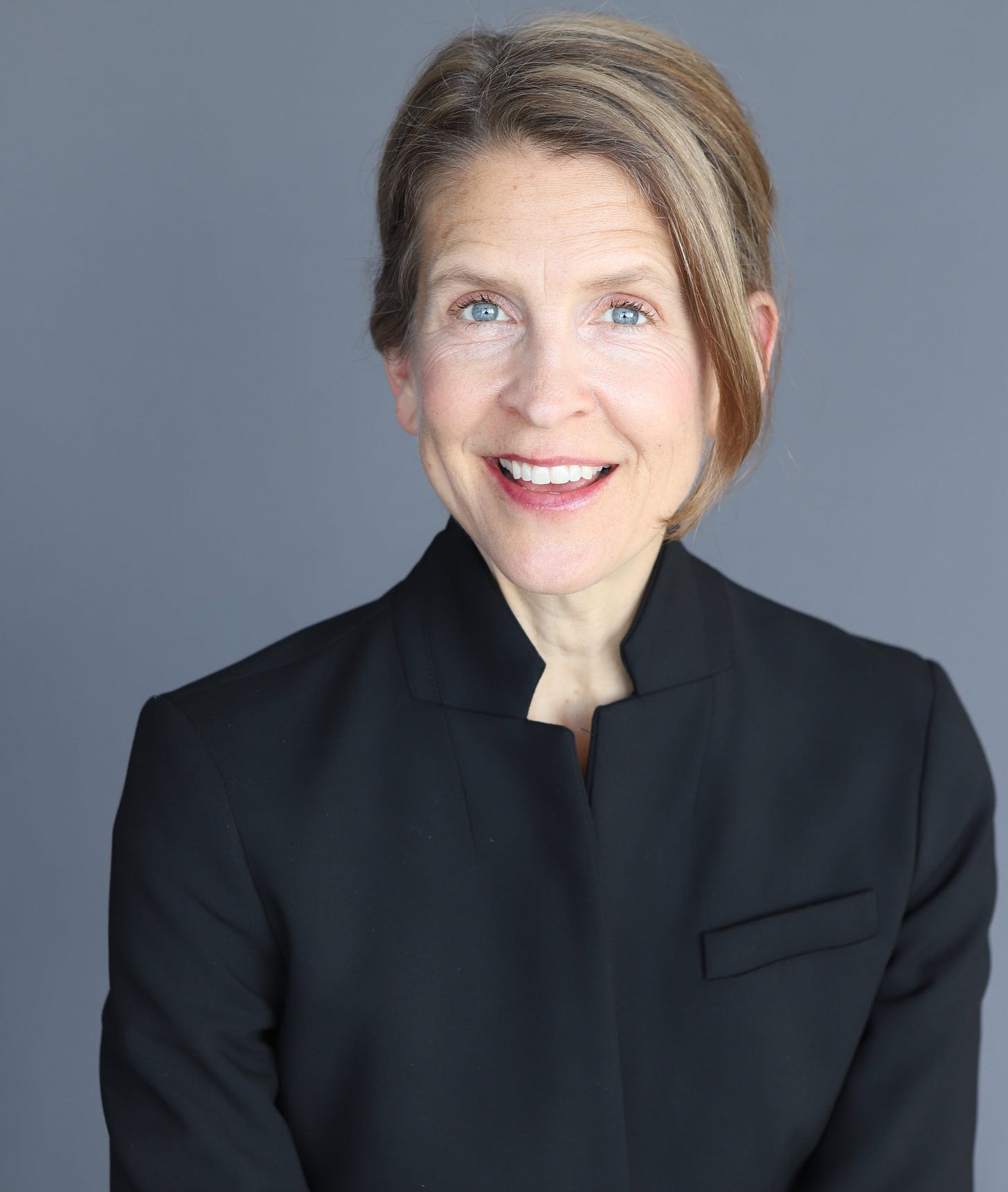
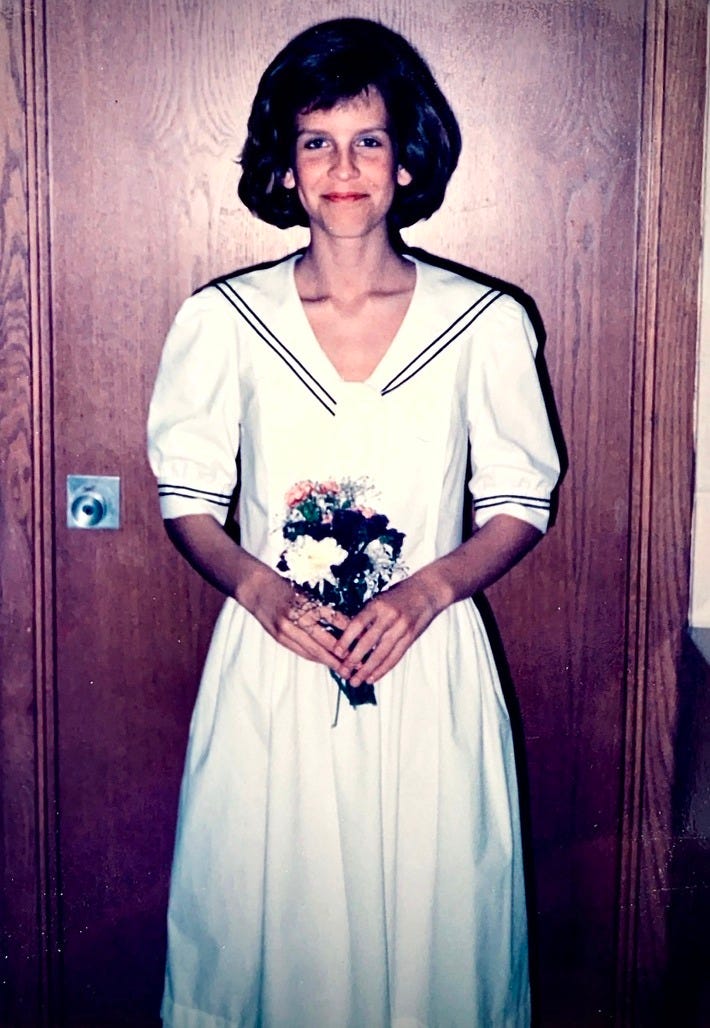
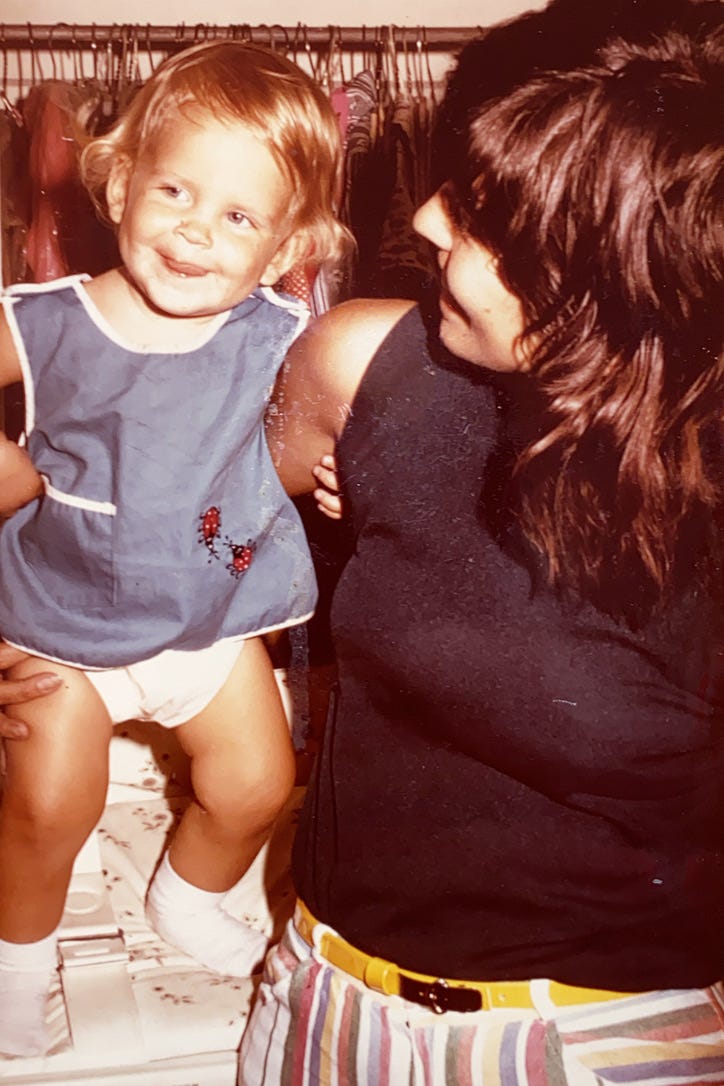
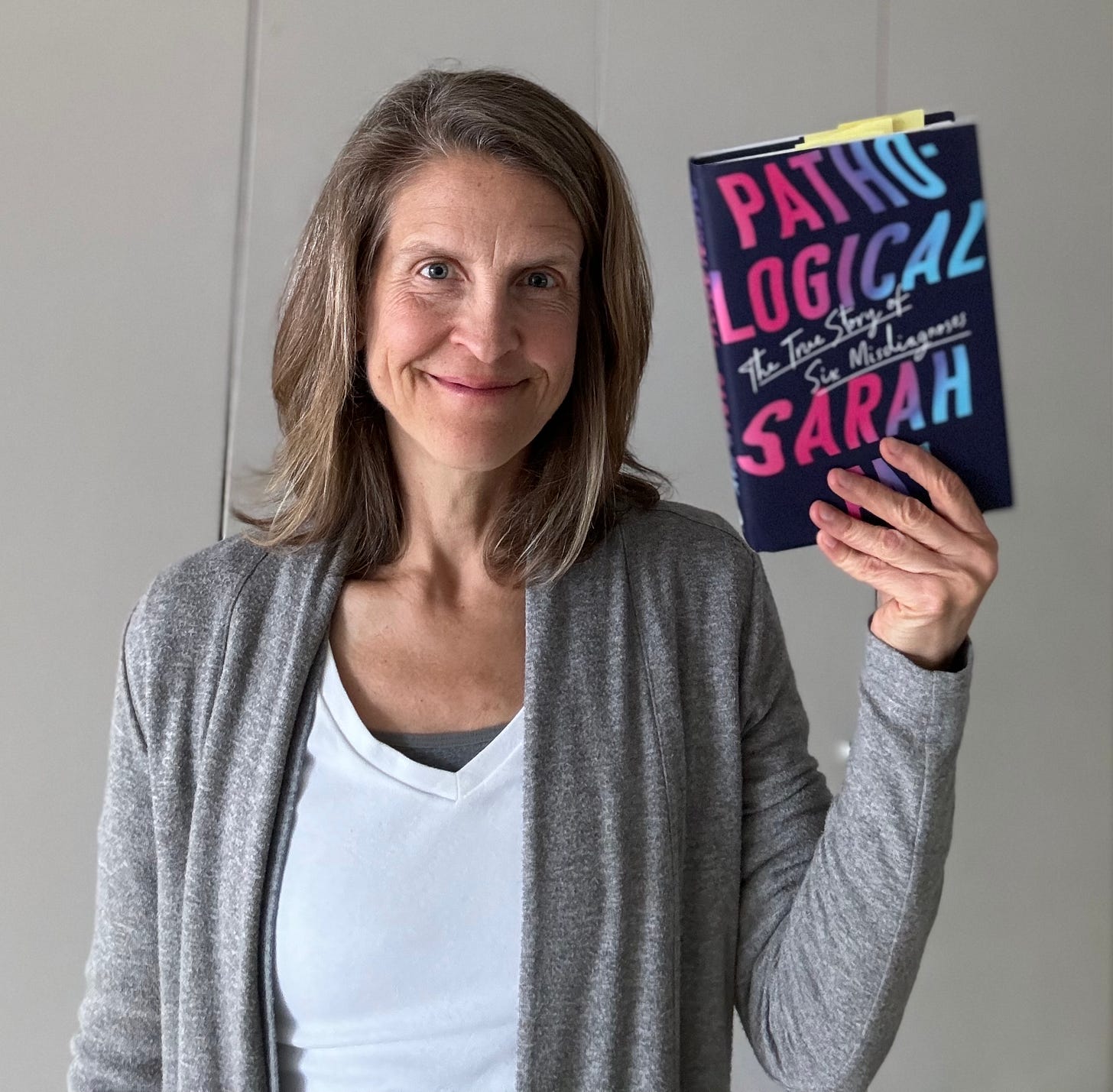
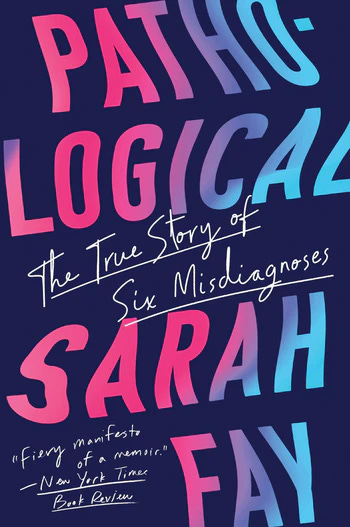
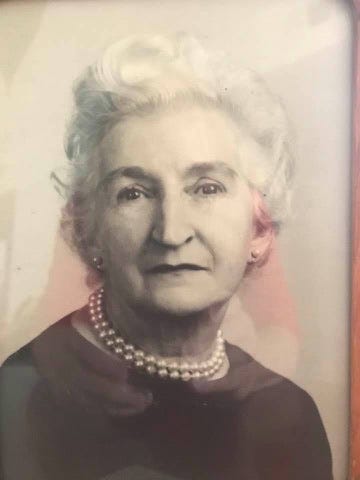
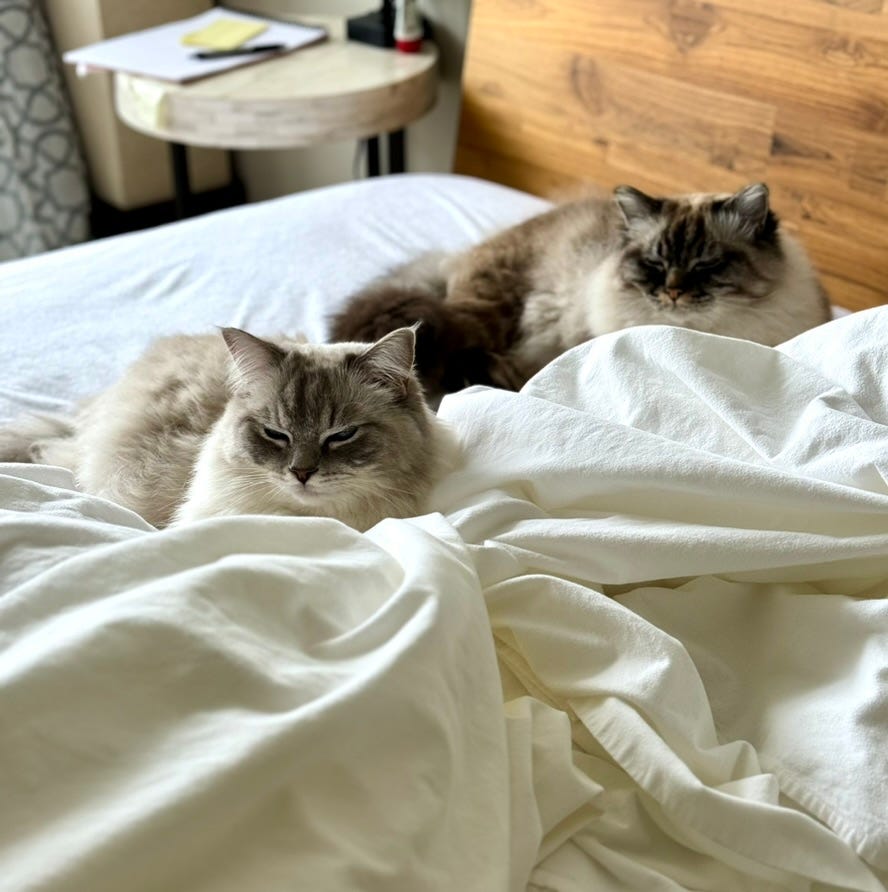
This is wise and wonderful. I love the story about the 102 year old who was smoking and said, "All four doctors who told me to quit are dead.” Not that I plan to start smoking.
I enjoyed Sarah Fay's response very much...partially because it made me smile. When I was 52, I wouldn't have even thought of signing on to a platform called "Oldster." Nevertheless, I wish her well with all my heart. I am eventually going to answer the questionnaire as soon as I learn how to upload photos, but when I was 52, it was the prime of my life. Old age was so, so far away. I'll be getting back to you soon, Sari!...I'll be 86 in about 5 weeks.